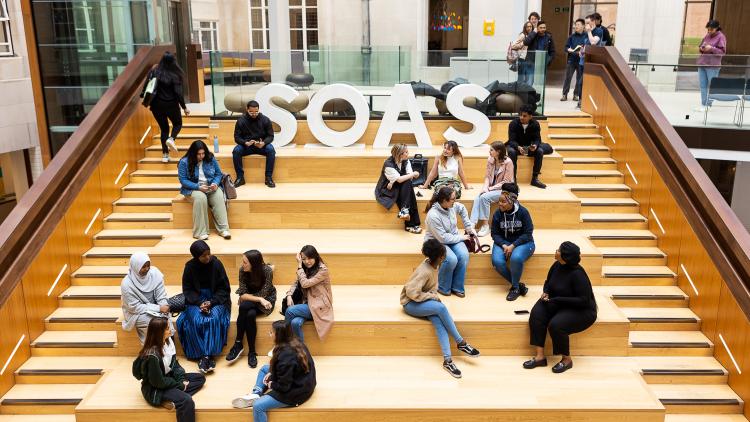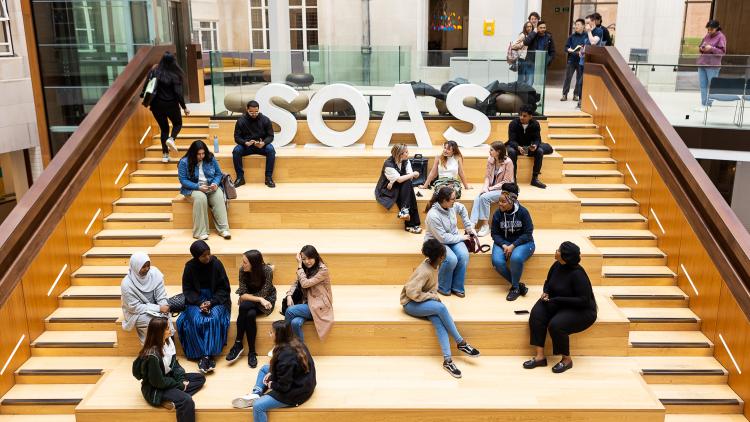How to learn a language effectively: Advice from SOAS teachers


Teachers from the SOAS Language Centre share their favourite tips for learning a language and sticking to it, from building confidence and setting goals to getting creative in your everyday practice.
It's no secret that learning another language is beneficial. Not only can it help you when travelling or working, but the process of learning is also known to improve your memory, boost academic performance and even your creativity.
No one is inherently 'bad at languages' - you're currently using a language to communicate with the world every day.
But it’s not easy. It takes time, commitment, and patience. That's why we asked teachers of Turkish, Arabic, Sanskrit, Tamil, and Vietnamese at SOAS to share their top advice for learning a language and sticking to it. Whether you’re learning in a classroom or as a hobby in your spare time, the SOAS Language Centre is here to help.
Don't panic: set goals and stay consistent
Firstly, try not to panic and be overwhelmed. Learning a language is always daunting, but everyone needs to start somewhere. Remember that no one is inherently 'bad at languages' - you're currently using a language to communicate with the world every day. You can learn a new language if you set your mind to it.
You'll be amazed at the progress you can make with just hard work and consistent practice. Make sure to set SMART (specific, measurable, and achievable) goals for daily or weekly language learning progress. Be steady in your studies: spend every day (without fail) at least 1 hour learning, and you will succeed.
Embrace mistakes and start speaking from day one
Start speaking the language from day one and remember that imperfections are part of learning. One way to embrace mistakes is to keep a journal of them and experiment with new words or structures in conversation. Record yourself mimicking dialogue from a film or a celebrity you admire and seek feedback from your teacher or a fellow speaker.
And make sure to gain real conversational practice early on by joining language exchanges or online communities. Also do contextual learning: Learn grammar and vocabulary through engaging with materials in the language, like news articles, novels, children's books and podcasts. Remember words, phrases and idioms by using custom flashcards regularly.
Put Post-it notes on your furniture (yes, really)
However, language learning isn't all flashcards and speaking groups. A creative way to learn is to incorporate it into your everyday life. Can you name the furniture or objects in your room? Label them with Post-it notes for an easy and regularly reminder of nouns. If you have a daily task planner, write your to-do list in your new language.
Start speaking the language from day one and remember that imperfections are part of learning.
If you're feeling brave, you can even change your phone device settings to the language you're learning. While it may be time-consuming and uncomfortable to start with, but it will force you to embrace the practical purpose of language and help normalise your new language in your everyday life.
Have fun, watch new things, eat new cuisines
Remember that language is a living thing and ever-evolving - so live it! Use it to enrich your understanding of another culture and expand your horizons. Try to incorporate your learning into your evenings, embracing new entertainment and cuisine. We're lucky to live in an age of endless media.
That means for many languages, you'll have access to a whole host of films, TV, and music, too. Make the most of it: whether that's learning a K-pop song by heart or binging a TV series in Arabic.
We hope these practical tips from the SOAS Language Centre helped you. Learning a new language requires dedication, consistency and creativity, but it's also a lot of fun - so enjoy the process.
Header image by Raychan via Unsplash.



